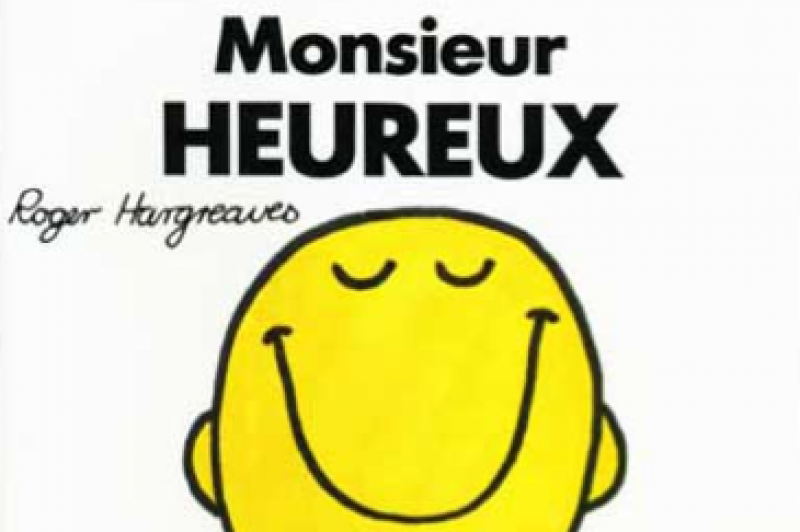Are the French a happy people? According to the latest figures, some are and others... not so much
How does one measure happiness? In some rare countries (such as Bhutan), there is an official national happiness index. Most countries, however, are not so fortunate (or happy). Here in Ireland, we tend to think of ourselves as amongst the most contented people in Europe, but are you happy because you say you are? Are you happy because you’ve money in your pocket? Are you happy because you don’t? Are you happy because you smile a lot?
The French aren’t world famous for being the happiest people in the world. In fact, more often than not, the accusation is that they should be the happiest with all the advantages that their country has (food, wine, weather, wealth… ) but that they still are not satisfied.
Enter Mr Pierre Côté. Since 2006, this marketing consultant has put his career on hold for the sake of the pursuit of happiness. Or rather, he has since this date been devoting his energies to the creation of the IRB (Indice Relatif de Bonheur, or the relative happiness index) in France to get to the bottom of the notion of happiness and to measure how his fellow countrymen and women stand on this issue.
His happiness map of France (see below) was achieved as a result of asking a sample of 21,701 people to reply to a questionnaire of 24 questions between 2010 and the beginning of 2013.
“These are people who answered a questionnaire comprising 24 clearly-defined factors or subjects (achievements, health, work, family, etc.),” explains Mr. Côté. “The study benefits from a substantial sample of the population which allowed us to establish precise data for each region. Despite all the technology, expertise and scanners that exist in this area, we thought that the best way to measure happiness was still to simply ask the people involved themselves. We are therefore working on the principle of self-evaluation which we believe is a more revelatory index of the feeling of happiness.”

Is everybody happy? Despite the image that many French have of it being a depressing and cold place, the Nord-pas-de-Calais region comes out on top, while the Corsicans and the Normans are amongst the least contented.
“When you compare them with other nations, you can find a certain level of pessimism in the surprising national average figure of 67.5 out of 100. When you put that figure in perspective and compare it with that of Quebec (77.2) and that of Canada (76.7), you can see a clear gap that might be explained in terms of cultural differences. The Quebeckers, and Canadians in general, have a fairly conciliatory character which can explain why they consider themselves more easily made happy. Conversely, the French have tendency towards self-criticism and dissatisfaction, which can lead them to consider themselves less happy than the average.
“For example, one could take the happiest towns in Quebec, which showed us that the most unhappy town (Longueil) in the province was still well above the French national average at 75. When you examine the 24 ‘factors’ already mentioned, you can find 12 of them on which the Quebeckers scored more strongly. I still would be very loath to say that the French are particularly unhappy: far from it, in fact. But they are definitely more demanding of themselves; something which is at the heart of their low score on the happiness index.”
Young French people showed themselves to be the least happy sub-section of the national population. Côté believes that this is an international tendency which is “directly linked to the era in which we live, meaning that young people everywhere are pushed towards feeling less and less optimistic about the future.”
How much of all of this is linked to the continuing worldwide economic crisis?
“Even though the 2013 study on France was carried out on a much larger population sample, we had already polled the French during the previous two years and that results obtained illustrate stability. In other words, there isn’t any notable tendency up or down since we began measuring. One can also see that the difference between the happiest and the most unhappy regions is extremely small (barely 5 points). This demonstrates a certain equity of feeling of happiness over the entire country.”




 Tootlafrance is Ireland’s fresh new eyes on France, bringing you the latest news, exclusive celebrity interviews, political analysis, cultural events, property news and, of course, travel features written by top Irish journalists.
Tootlafrance is Ireland’s fresh new eyes on France, bringing you the latest news, exclusive celebrity interviews, political analysis, cultural events, property news and, of course, travel features written by top Irish journalists.